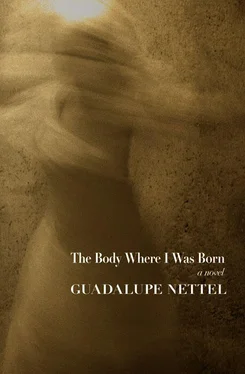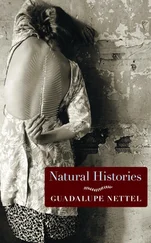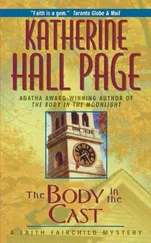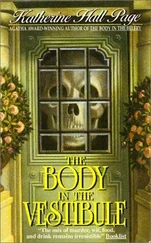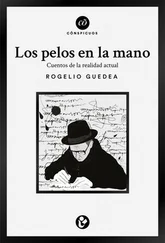“Children, listen closely,” she said from the head of our cedar dining table. “The world you are going to inherit when you grow up is going to be a lot tougher and harder than the world your father and I were raised in. That’s why you’re going to have to study and get ready to face it. Until then, you can count on me to guide you toward a future safe from harm.”
What Mom really meant is that she was not going to leave us alone for one second until we had earned a university degree, a PhD at least, and had found a stable job that would allow us to scrimp and save our lives away like she was doing. Dr. Sazlavski, despite how she could come off, my mother was also an incredibly caring person, partly because it was in her nature, but also because she wanted to raise sensitive human beings who were capable of giving and receiving affection. I know that everyone sees their mother as a beautiful woman, but I can honestly say — and there is no one who would dare contradict me — that Mom surpassed all standards of beauty, and not just Mexican standards, but those of any country. She didn’t read books on education — probably thinking that no one could teach her about that — but she did religiously read Wilhelm Reich and his theory of the orgasm as a cure-all elixir. While my brother and I were building sandcastles on beaches with our father, Mom was in Santa Barbara attending seminars on how to unblock her sexual energy, when what she really needed was a workshop on how to contain it. My mother was determined to cast off all her inhibitions and to keep us from ever developing our own. So she organized recreational activities at home, such as having us move our bodies to the beat of the music, or sculpt with clay then smear the same clay on our naked bodies. Watching us in action for about fifteen minutes was enough for her to see that, at least in my case, her efforts were in vain, if not counterproductive. But I never stopped writing. My general predilection was still for fantasy, with an inclination toward gore and terror, though I would also compose a poem or elegy for a flitting bird or dead plant. Unlike other grownups, who saw in this a harmless childish fancy, as eccentric as it was passing, my mother made a big fuss. She celebrated every text as a masterpiece and swore that within those paragraphs of cursive lettering and unintentionally simplistic drawings hid the signs of a strong calling. Often, and above all in the moments of my life when I feel imprisoned by my obsession for language, for constructing a plot, and for, the most absurd thing of all, turning writing into a profession, a modus vivendi , I blame her excessive enthusiasm. Who knows, maybe I would be happier today if every month I collected a fat paycheck from IBM.
After their separation, my mother started to hang out with a very different group of friends, artists of every kind, most of them theater people, and among them foreigners and flaming homosexuals who to me were the most fun people in the whole world. They often threw parties at night that we were never allowed to attend, but I fondly remember a few dinners and days spent in the countryside at some of their houses. Italians, Swiss, children of eminent members of the Spanish Republic in exile — all partook with us in the bacchanalia. I remember best of all Rafael Segovia, whom I saw again years later in Montreal, and Daniel Catán. Very few of them had kids. They also held dinners at our country house. Mom felt no qualms about showing my writing to her literary friends without asking my permission, and moved by god knows what sort of emotion, they responded with admiration and kindness. It can even be said that they, along with my classmates, initiated my addiction to praise, from which one may somewhat recover but never be cured.
Even though my mother’s character was much gentler than that of my father, when she did lose it, she could turn violent, and then she’d hit, slap, and pull hair — delivering what could have been called sanjuanizas , for which she rarely apologized. Instead of admitting to having lost control, her tactic was to say we’d provoked her. It’s worth noting that I was much more often the target of this kind of reprimand than my brother. And still, if in that time I had been asked if I wanted to go live with my father, Doctor, I would have flat-out said no. Call it Stockholm syndrome or whatever you think fits. My mother’s house was where I had always lived, and the place I considered my own. The tree I climbed to release adrenaline after every terrifying outburst was there. Woven into those memories of her hitting me are those of her hugging me at bedtime, of her hands rubbing alcohol onto the bottoms of my feet during feverish nights, of her tender words.
Everything was the opposite on my father’s continent. Austerity and stoicism became the most pointless and masochistic values in the world. My father, who in those days owned an insurance company and several garages, was a big fan of casinos, sports cars (he had an MG convertible, crimson), and the luxury of grand hotels. All it took to get him to buy us a new toy was to be in the right place and to announce that we wanted it. It didn’t matter how much it cost, nor did it matter how much he had spent to indulge us the month before. I’m not going to say the events of his life haven’t changed him a great deal, but back then he had the arrogance of a self-made man who’d done well in business. If that success wasn’t enough, he had also mustered the tenacity, sensitivity, and intelligence to become a psychoanalyst of considerable renown (at least in the school he’d trained in), which invested his self-satisfaction with an intellectual aura. When we were with him, we were free to use swear words as we pleased — something our mother never tolerated — and we could watch PG-13 movies and stay up past our bedtime. On the other hand, he took it badly when we fought — it was one of the things that really drove him up the wall. I don’t think my brother and I judged the two continents we swung between. We adapted to both belief systems, indiscriminately and unquestioningly, the way a person adapts to the climates of two different cities while living between them.
I should say that after the separation, my parents did their best to preserve the unity of the family. We’d all eat lunch at home at least once a week, and we’d often travel together during the summer. And there were some rather long stays at the country house with both of them. This simulacrum of happiness was pretty strange. In the end, we were always left nostalgic for what we could have been and didn’t get to be, but it was still better than nothing.
There weren’t many vacations my brother and I took with just my mother, and of those, there is only one I remember well — to the state of Sonora. In those days, my mother was particularly interested in community living. Maybe she was thinking that since the traditional matrimonial structure hadn’t worked out for her, other, newer — or more archaic — systems might lead her to a fulfilling life. So we went to Sonora to visit a commune known as Los Horcones. We flew to Hermosillo, where we rented a car and drove around the desert until we found the place. We arrived in the evening, at dinnertime. As soon as they heard the car motor, a few of the oldest members of the commune came out to greet us and ushered us into the dining room, which looked like a school cafeteria and where some sixty people sat around huge wooden tables. The food was simple but tasted so good: frijoles charros, beef stew with a tomato base, flour tortillas. After five hours of traveling we were starving and ate ravenously. During dinner they explained to us their rules of cohabitation. I’m writing down the ones that stuck in my memory.
Rule 1: There was no private property. Objects belonged to nobody. Not a toothbrush, not underwear, shoes, food, or beds had owners in this place. All was communal .
Читать дальше
